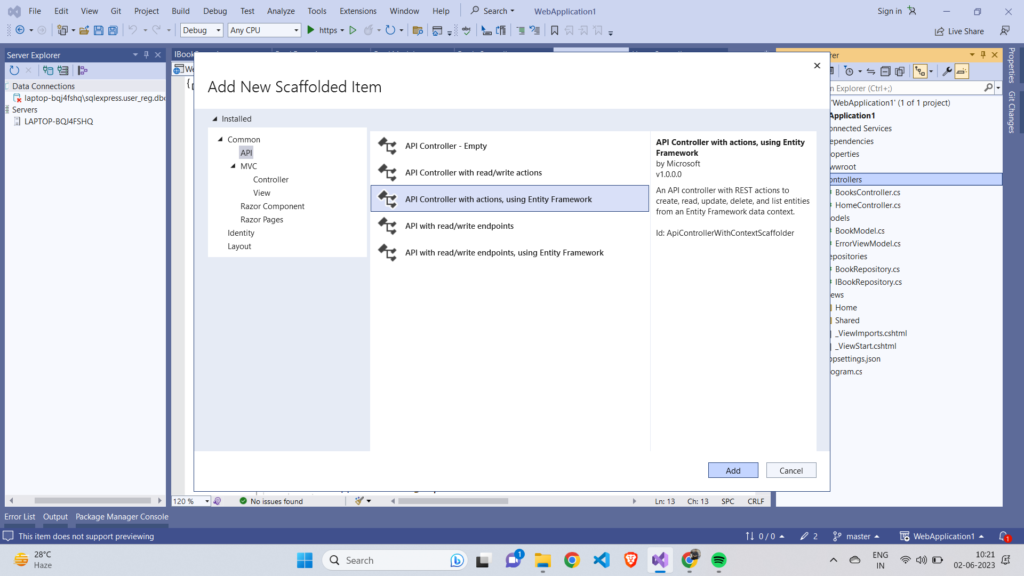To create a Web API in ASP.NET Core, you can follow these steps:
Step 1: Create a new ASP.NET Core project
- Open Visual Studio or any other IDE of your choice.
- Create a new project using the ASP.NET Core Web Application template.
- Choose the API template and provide a name for your project.
- Click “Create” to create the project.
Step 2: Define the API Controller
- In the created project, find the “Controllers” folder.
- Right-click on the folder and select “Add” -> “Controller.”
- Choose the “API Controller with actions, using Entity Framework” template.
- Specify the name for your controller and click “Add.”

Step 3: Define API endpoints
- Open the created API controller file (e.g.,
ValuesController.cs). - The template should have generated some sample actions (methods).
- Modify or add your desired actions to handle different HTTP requests.
- For example, you can have a method decorated with
[HttpGet]attribute to handle GET requests. - You can also have methods decorated with
[HttpPost],[HttpPut],[HttpDelete], etc., for handling other HTTP verbs. - Inside each action, you can write the logic to process the requests and return the desired responses.
Step 4: Configure routing
- Open the
Startup.csfile in your project. - In the
ConfigureServicesmethod, add the following code to enable API controllers and their features:
services.AddControllers();- In the
Configuremethod, add the following code to configure the routing for your API:
app.UseRouting();
app.UseEndpoints(endpoints =>
{
endpoints.MapControllers();
});Step 5: Test your API
- Build and run your project.
- Your API should now be accessible via the defined endpoints.
- You can use tools like Postman, curl, or any other HTTP client to send requests to your API and verify the responses.
That’s it! You have successfully created a Web API in ASP.NET Core. You can continue to add more endpoints and business logic to fulfill your API requirements. Remember to handle validation, authentication, and authorization as needed.
